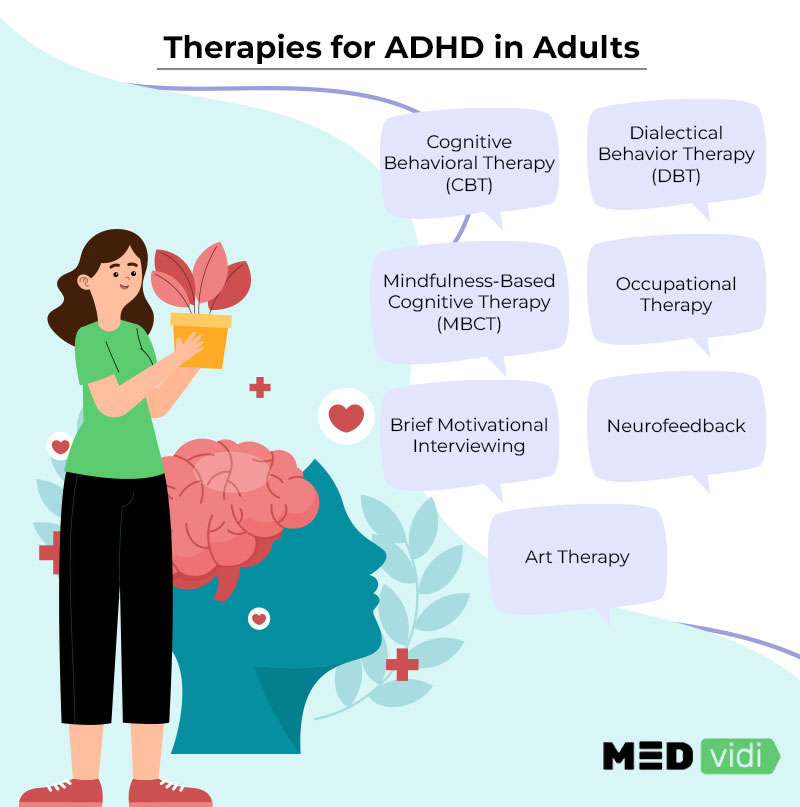The Benefits of Customized ADHD Therapy Prepare For Better Results
The execution of individualized ADHD therapy strategies has emerged as an essential strategy in enhancing therapeutic results for people affected by this condition (ADHD treatment). By recognizing the special manifestations of ADHD in each person, these personalized treatments promote higher engagement and inspiration, eventually leading to much more effective coping methods.
Understanding ADHD Irregularity
Although Attention-Deficit/Hyperactivity Problem (ADHD) is typically perceived as a particular condition, its indications can differ substantially amongst people. This variability is influenced by a series of variables, consisting of age, gender, existing together conditions, and environmental contexts. Children with ADHD might exhibit hyper behaviors, while grownups may mainly struggle with focus shortages. Gender differences additionally contribute, as men are much more regularly identified with ADHD and often display a lot more overt signs, whereas females may offer with less evident inattentiveness.
In addition, people with ADHD may experience a spectrum of emotional and behavioral obstacles, such as anxiety or oppositional defiance, that can complicate diagnosis and therapy. The communication of these variables can lead to diverse experiences of ADHD, requiring a nuanced understanding of the condition. It is also worth noting that ADHD can present differently across various cultural contexts, affecting just how signs and symptoms are recognized and dealt with. This understanding highlights the significance of acknowledging ADHD as a diverse problem, which calls for customized methods to treatment that take into consideration the distinct requirements and experiences of each individual.
Key Elements of Customization
Customized ADHD treatment strategies are based in a number of essential components that make certain reliable administration of the disorder. A comprehensive analysis is vital, involving standard score ranges, meetings, and behavior monitorings. This comprehensive evaluation enables clinicians to recognize the individual's one-of-a-kind signs, toughness, and difficulties.
2nd, the involvement of multiple stakeholders, consisting of parents, educators, and the individual, adds to a holistic sight of the person's requirements. Collaboration fosters an encouraging atmosphere that can adjust to the individual's context and way of life.
Third, treatment plans need to be flexible and versatile, enabling for modifications based on recurring feedback and the individual's advancing needs. This adaptability enables the combination of different therapeutic methods, such as behavior treatments, psychoeducation, and medication administration.
Additionally, social and contextual factors need to be considered. Acknowledging the person's history, worths, and preferences guarantees that the treatment matters and considerate.
Lastly, regular follow-ups and evaluations are important to keep track of progression and make essential changes. By focusing on these key elements, customized ADHD therapy strategies can considerably improve the efficiency of treatments, causing boosted end results for people with ADHD.
Boosted Involvement and Inspiration
To effectively promote enhanced engagement and motivation in individuals with ADHD, it is vital to incorporate techniques that resonate with their rate of interests and staminas. Individualized therapy plans that align with an individual's passions can lead to boosted involvement in restorative activities, promoting a sense of ownership and enthusiasm for the procedure.
Making use of interactive and innovative techniques can likewise substantially improve motivation. Integrating gamification elements or real-world applications of skills can make tasks a lot more enticing and relevant. This not only captures focus but likewise enhances discovering through delightful experiences.
Additionally, setting possible and significant goals customized to the individual can boost motivation. When people see their development in the direction of personally substantial goals, they are more most likely to remain involved. Normal comments and recognition of success can even more sustain motivation, developing a positive responses loop that urges continued initiative.
Lastly, cultivating a supportive atmosphere where people feel comprehended and valued can considerably affect their involvement levels. When treatment strategies are created collaboratively, incorporating input from the person, they are most likely to really feel invested in their trip, ultimately leading to enhanced end results in taking care of ADHD.
Improved Coping Techniques
Establishing boosted coping techniques is important for people with ADHD, as it equips them with efficient devices to navigate day-to-day difficulties. An individualized treatment plan enables the view it now identification of specific coping mechanisms customized to the person's unique requirements and scenarios - ADHD treatment. Strategies such as mindfulness, time management skills, and organizational methods can be incorporated right into day-to-day regimens, cultivating a feeling of control and lowering anxiousness
Mindfulness techniques, consisting of reflection and deep-breathing workouts, aid people with ADHD concentrate their interest and control their emotions. Time administration strategies, such as using timers or breaking tasks right into smaller sized, convenient actions, can alleviate feelings of overwhelm. Additionally, business devices like organizers and lists can dr mehta psychiatrist improve efficiency and accountability.
Long-term Favorable Outcomes
Carrying out tailored ADHD therapy plans can result in significant long-term favorable results for individuals. These customized strategies, which think about distinct symptoms, choices, and life scenarios, assist in much more reliable monitoring of ADHD signs in time. By concentrating on the particular needs of the person, these plans boost adherence to treatment protocols and foster higher engagement in therapeutic tasks.

In addition, individualized treatment strategies can significantly decrease the risk of comorbid problems, such as anxiety and anxiety, which are often connected with ADHD. Early intervention and regular assistance aid individuals develop durability and coping techniques, advertising general mental health and wellness.
Ultimately, the lasting positive results of personalized ADHD treatment intends not only enhance the lifestyle for individuals however also contribute to their general health and success in various life domains. This all natural approach highlights the relevance of individualized care in handling ADHD properly.
Conclusion

Comments on “Medication Management Programs for Accurate Mental Health Treatments”